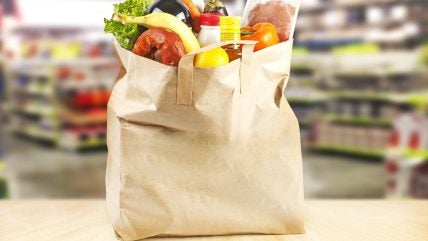
Visy, a packaging and resource recovery company, has enhanced its sustainability with the introduction of recyclable paper bags made domestically in Australia.
The initiative marks a significant step in the company’s efforts to move away from single-use plastics.

Discover B2B Marketing That Performs
Combine business intelligence and editorial excellence to reach engaged professionals across 36 leading media platforms.
Made from thicker paper containing recycled content, the retail paper bags are designed to be recyclable through local kerbside recycling bins.
Visy made these bags at its manufacturing facility in Reservoir, in the north of Melbourne.
The newly introduced heavyweight bags are now available in retail stores across the country.
Visy Strategic Retail general manager Fiona Macleod said: “Our recyclable paper bags are a more sustainable backup for when you’ve forgotten your own reusable bags at home or need an extra one at checkout.

US Tariffs are shifting - will you react or anticipate?
Don’t let policy changes catch you off guard. Stay proactive with real-time data and expert analysis.
By GlobalData“By using Australian paper and manufacturing the paper bags locally, we’re supporting local jobs in Australia and reducing our reliance on single-use plastic.
“Once you’re done with your paper shopping bags, throw them in the recycle bin and we’ll turn them into new products.”
The bags come with a Forest Stewardship Council certification, which underscores the responsible sourcing of the fibre used in their production.
Recently, Visy launched four new Australian-made glass bottles and jars for food and beverage customers.
Manufactured at the company’s glass manufacturing facilities in Penrith and Spotswood, the new glass bottles and jars are both made with Visy Re+ Glass.
The bottles have 51% recycled content on average while the jars have an average recycled content of 39% as of this year.





